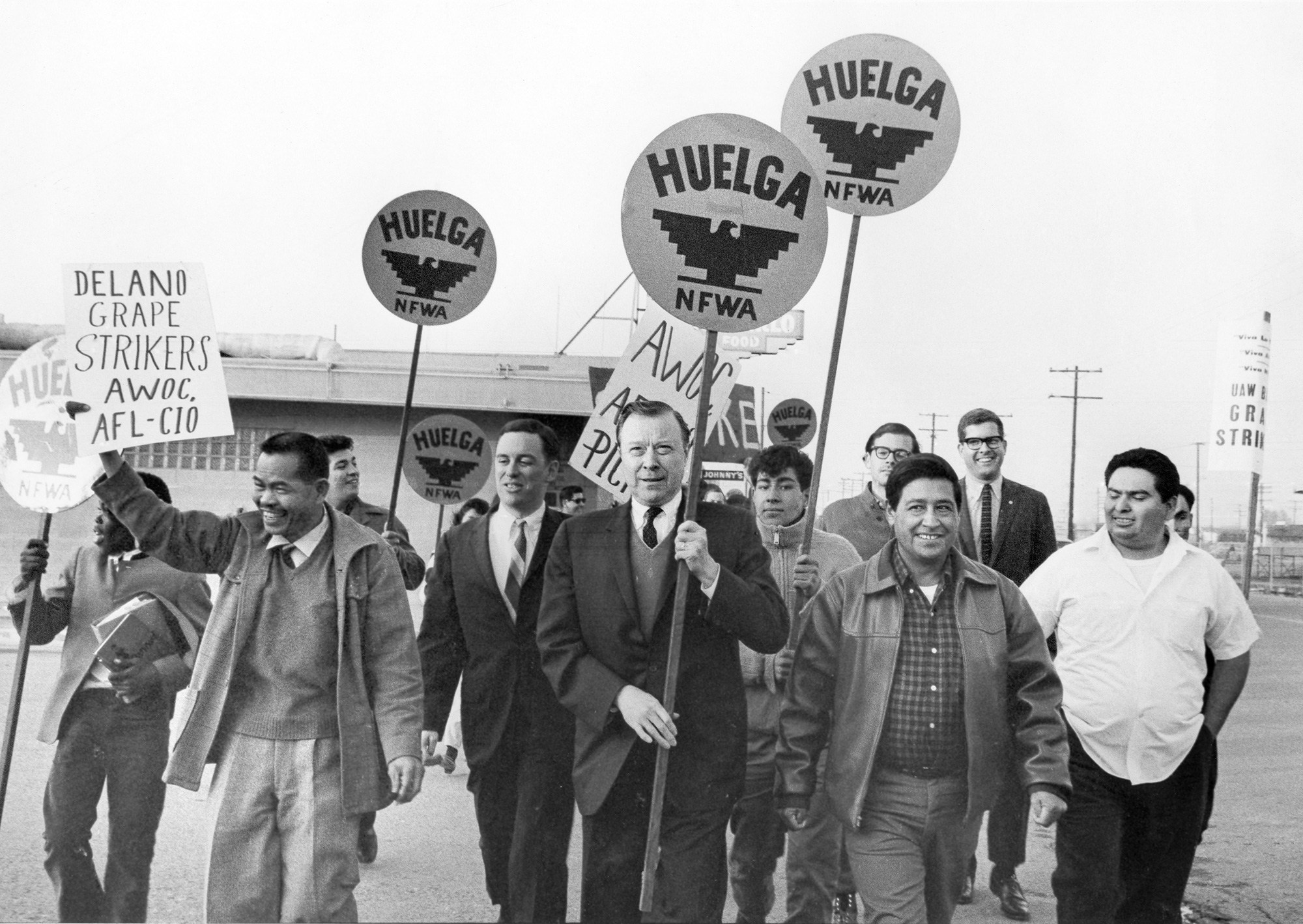The following is excerpted from a Los Angeles Times Commentary piece published Feb. 11, 1974, in the wake of a bus accident that killed 19 farm workers. Two weeks ago, 13 tomato workers died and two workers were injured in the crash of a farm labor van in the Central Valley. Legislation is pending in Sacramento to require seat belts on farm worker vehicles and tougher enforcement against violators.
* * *
On Monday, Jan. 14, 1974, Pablo Arellanos, 54, started picking up farm workers at 2 a.m. for Jesus Ayala, a labor contractor. By 3 a.m. or 3:30 a.m., Pablo had a busload of people and began his 135-mile trip to High and Mighty Farms lettuce fields near Blythe. Then, after a full day working in the fields himself, Pablo drove the workers back to Mexico at night and cleaned the bus before trying to get some sleep for the next day.
Early Tuesday, he again picked up a crew of farm workers and headed north. On approaching Blythe shortly before sunrise, the bus missed a turn and careened off the road into a drainage ditch. On impact, seats and farm workers were thrown to the front of the bus, crushing Pablo to death and trapping many others who soon drowned in the ditch.
For three days, we visited the families of the dead workers and sought more information about the causes of the accident.
Among the dead, we discovered, were men, women and children. In one family, a father and his three teenage children were killed.
Amid the grief there was great bitterness. The workers were–and still are–bitter because they’ve been through this kind of tragedy too many times before. The workers learned long ago that growers and labor contractors have too little regard for the value of any individual worker’s life.
The trucks and buses are old and unsafe. The fields are carelessly sprayed with poisons. The laws that do exist are not enforced. How long will it be before we take seriously the importance of the workers who harvest the food we eat?
On Saturday, Jan. 19, 2,000 farm workers crowded into the Calexico National Guard Armory for a funeral mass celebrated in Spanish. Afterward, at the request of the farm workers’ families, on behalf of their union, I made the following remarks:
“We are united here in the name of God to pay final tribute to our brothers and sisters who lost their lives in a tragic bus accident. We are here also to show our love and solidarity for the families who have lost so much in the deaths of their loved ones.
“We are united in our sorrow but also in our anger. This tragedy happened because of the greed of the big growers who do not care about the safety of the workers and expose them to grave dangers when they transport them in wheeled coffins to the fields.
“There have been so many accidents–in the fields, on trucks, under machines, in buses–so many accidents involving farm workers.
“People ask if they are deliberate. They are deliberate in the sense that they are the direct result of a farm labor system that treats workers like agricultural implements and not as human beings. These accidents happen because employers and labor contractors treat us as if we were not important human beings.
“But brothers and sisters, the men and women we honor here today are important human beings. They are important because they are from us. We cherish them. We love them. We will miss them.
“They are important because of the love they gave to their husbands, their children, their wives, their parents–all those who were close to them and who needed them.
“They are important because of the work they do. They are not implements to be used and discarded. They are human beings who sweat and sacrifice to bring food to the tables of millions and millions of people throughout the world.
“They are important because God made them, gave them life, and cares for them in life and in death.
“Now that they are gone, how can we keep showing how important they are to us? How can we give meaning to their lives and their sacrifice?
“These terrible accidents must be stopped! It is our obligation–our duty to the memory of those who have died–to see to it that workers are not continually transported in these wheeled coffins, these carriages of death and sorrow. The burden of protecting the lives of farm workers is squarely on our shoulders.
“Let the whole world know that the pain that today fills our hearts with mourning also unifies our spirits and strengthens our determination to defend the rights of every worker.
“Let the labor contractors and the growers know that we will never stop working and struggling until there is an end to the inhuman treatment of all farm workers.”
Cesar Chavez, who founded the United Farm Workers of America, AFL-CIO, in 1962, died April 23, 1993.
Copyright 1999 Los Angeles Times. All Rights Reserved
